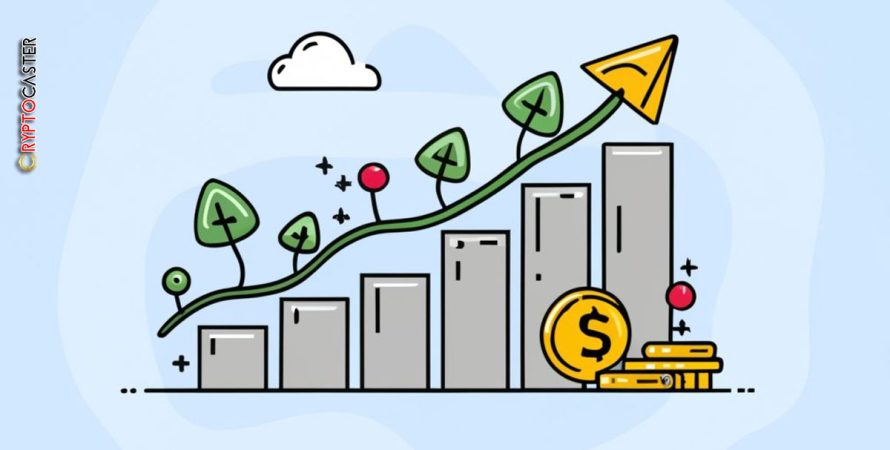Through the platforms, collectors can lower their capital gains tax liability by offloading their low-value NFTs.
Due to a general failure of digital collectibles prices to reclaim prior highs and a decrease in the frequency of trades, the NFT market has had a difficult year.
Weekly NFT trades have been stuck between 100,000 and 150,000 since May after consistently surpassing 500,000 in early 2022, despite the fact that NFTs have started to show more life in the last few weeks, according to data from Dune Analytics.
Stay in the know on crypto by frequently visiting Crypto News Today
Several platforms have started to provide NFT holders with tax-loss harvesting services in the midst of the recession. These websites take a small fee in exchange for buying NFTs that are hard to sell and have lost value. As a result, collectors are able to absorb losses and lower their total capital gains tax obligation. Blockworks-verified on-chain data indicates that consumption of these services has rapidly increased recently.
A solution like this is unsaleable. The company was founded in 2022 by Zach Miller, David Sawyer, and Skyler Hallgren because they were dissatisfied with some of their lost NFT investments, which were effectively illiquid because no one would buy them.
The cost of gas + about $2 in ether is what Unsellable charges to obtain an NFT from a collector. According to co-founder Skyler Hallgren, many of Unsellable’s users are selling NFTs from rug pulls where the owners gave up on their ventures. In Unsellable’s collection, almost every NFT has a fractional ether value.
According to Hallgren, as of Wednesday, the platform had been buying 1,000 NFTs on average over the previous five days and was getting close to 10,000 acquisitions in December. He also mentioned that on most days in August, Unsellable purchased between 0 and 10 NFTs.
Hallgren emails revealed, “We recognize that most investors think about tax loss harvesting only in December, with most getting around to it between December 29-31st.” This new generation of web3 investors is just beginning to understand how to be tax-savvy with their cryptocurrency and NFT investments, whereas nearly all traditional investors implement tax loss harvesting strategies.”
Blockworks had a conversation with an X user going by the handle MoneyPrinterGoBrrr, who had just used tax-loss harvesting to reduce some of their NFT losses. The user reported that their portfolio had been profitable overall in 2021 and 2022 after minting hundreds of NFTs.
CryptoCaster Quick Check:
Still, not every collection proved to be a success. While some NFTs were simply forgotten about, others were the victims of rug pulls. They sold 44 of the down-bad collectibles on Tuesday via Harvest.art, a different tax-loss harvesting website.
They posted a direct message saying, “It’s nice to see the calculated taxes owed on your gains go down, but it doesn’t really take the sting out of the lost value.”
Advertisement
Follow GappyCoin PreSale on Twitter, and ReCap for information and more.
There are more services that allow users to harvest tax losses than Unsellable and Harvest.art. Another free solution that provides the same service is NFT Loss Harvestooor. Users that sell their NFTs for soon-to-be-deployed Junkcoin tokens are rewarded by The Junkyard.
In return for little amounts of solana, collectors can burn their NFTs based on solana at Sol Incinerator. The site has witnessed a spike in usage at year-end and permits tax-loss harvesting, even though it is not overtly advertised as such.
DappRadar reports that transactions on Sol Incinerator are up over 70% from the previous week.
NFT Harvestooor is connected to CoinLedger, a cryptocurrency tax program. In December 2022, Hacken audited The Junkyard, and Paladin audited Unsellable. The code for Harvest.art is open source, however Blockworks was unable to find an audit. Additionally, analysts were unable to find an audit of Sol Incinerator’s smart contracts. Before using any blockchain service or platform, people should always conduct their own research.![]()
If this article brought you clarity, insight, or value—support the work that made it possible.
At CryptoCaster, we report on Web3, crypto markets, and institutional finance with no billionaire owners, no shareholders, and no hidden agenda. While mainstream media bends toward Elon Musk, BlackRock, and JPMorgan narratives, we stay focused on what matters: truth, transparency, and the public interest.
We don’t just cover the headlines—we investigate the power structures behind them. From FTX and Ripple to the quiet push for CBDCs, we bring fearless reporting that isn’t filtered by corporate interests.
CryptoCaster is 100% paywall-free. Always has been. To keep it that way, we depend on readers like you.
If you believe independent crypto journalism matters, please contribute—starting at just $1 in Bitcoin or Ether. Wallet addresses are below.
Your support keeps us free, bold, and accountable to no one but you.
Thank you,
Kristin Steinbeck
Editor, CryptoCaster
Please Read Essential Disclaimer Information Here.
© 2024 Crypto Caster provides information. CryptoCaster.world does not provide investment advice. Do your research before taking a market position on the purchase of cryptocurrency and other asset classes. Past performance of any asset is not indicative of future results. All rights reserved.
Contribute to CryptoCaster℠ Via Metamask or favorite wallet. Send Coin/Token to Addresses Provided Below.
Thank you!
BTC – bc1qgdnd752esyl4jv6nhz3ypuzwa6wav9wuzaeg9g
ETH – 0x7D8D76E60bFF59c5295Aa1b39D651f6735D6413D
CRYPTOCASTER HEATMAP







